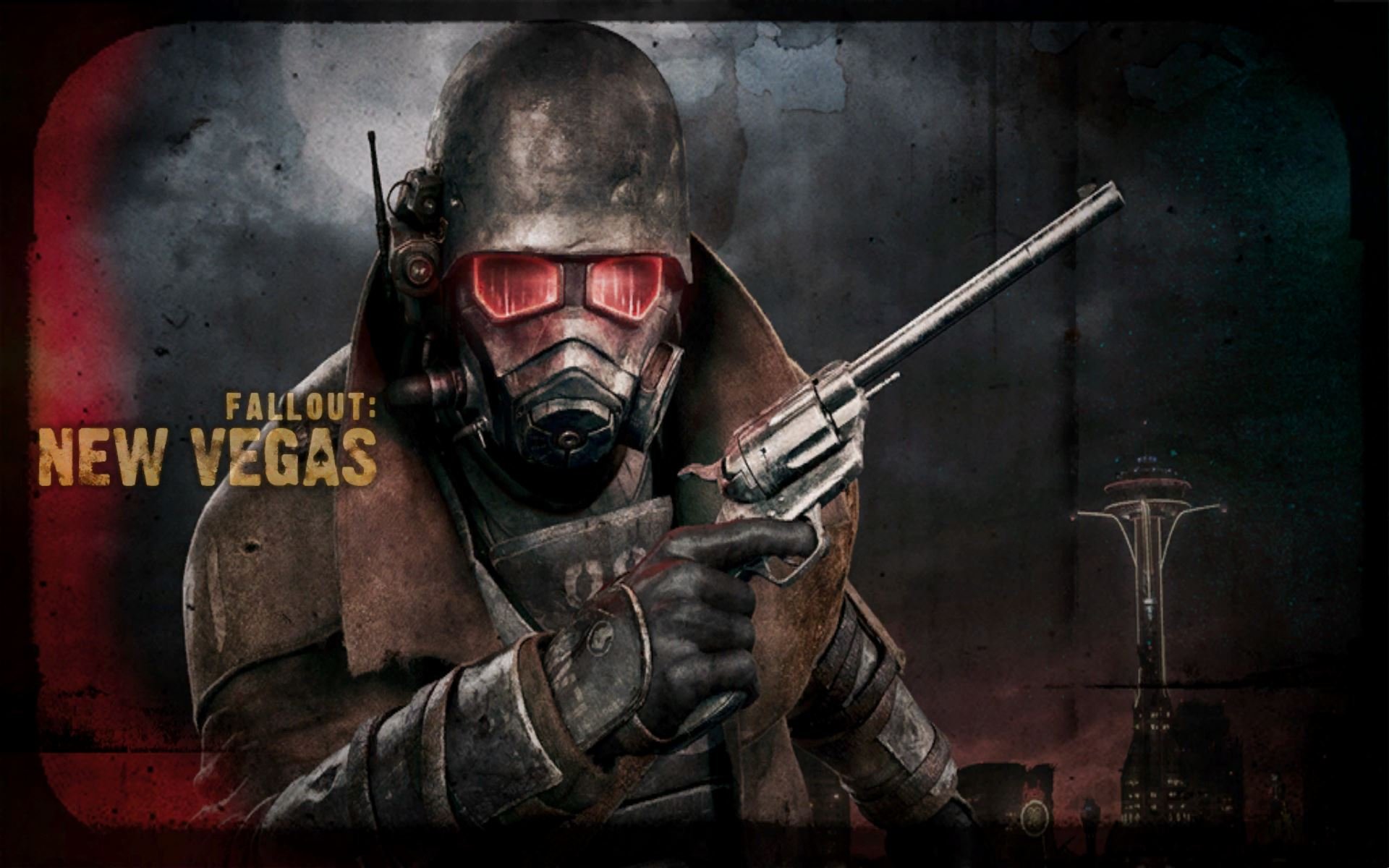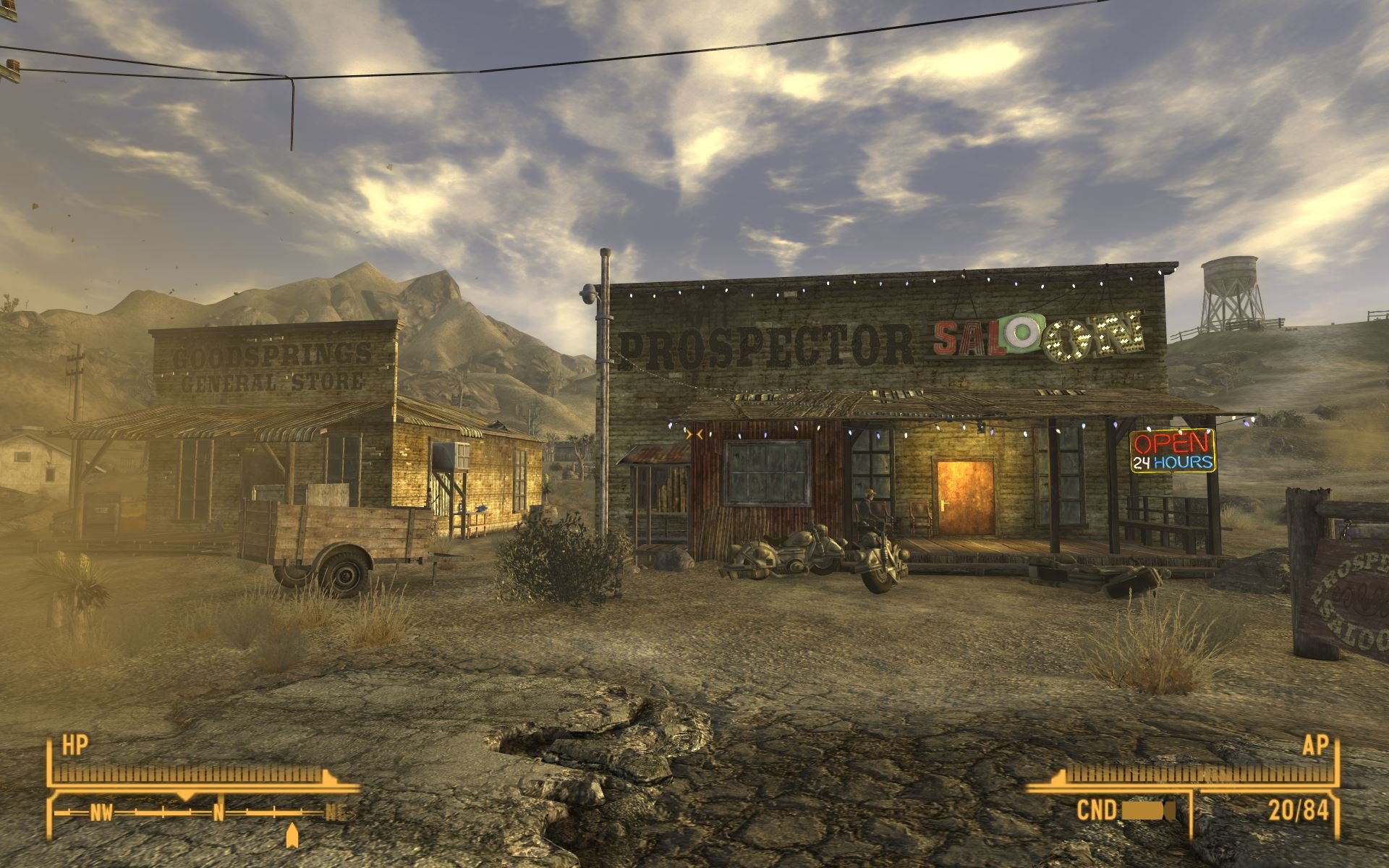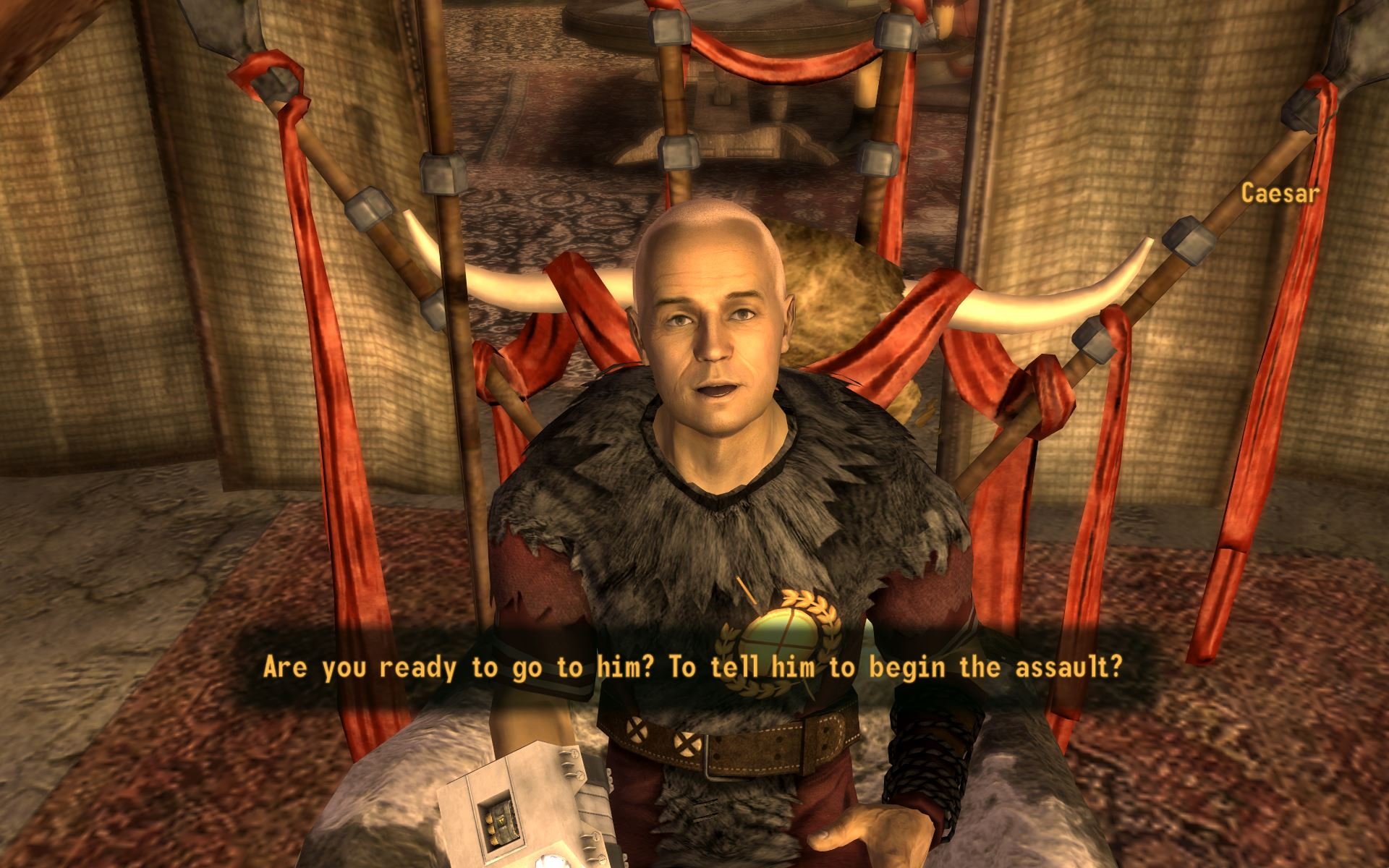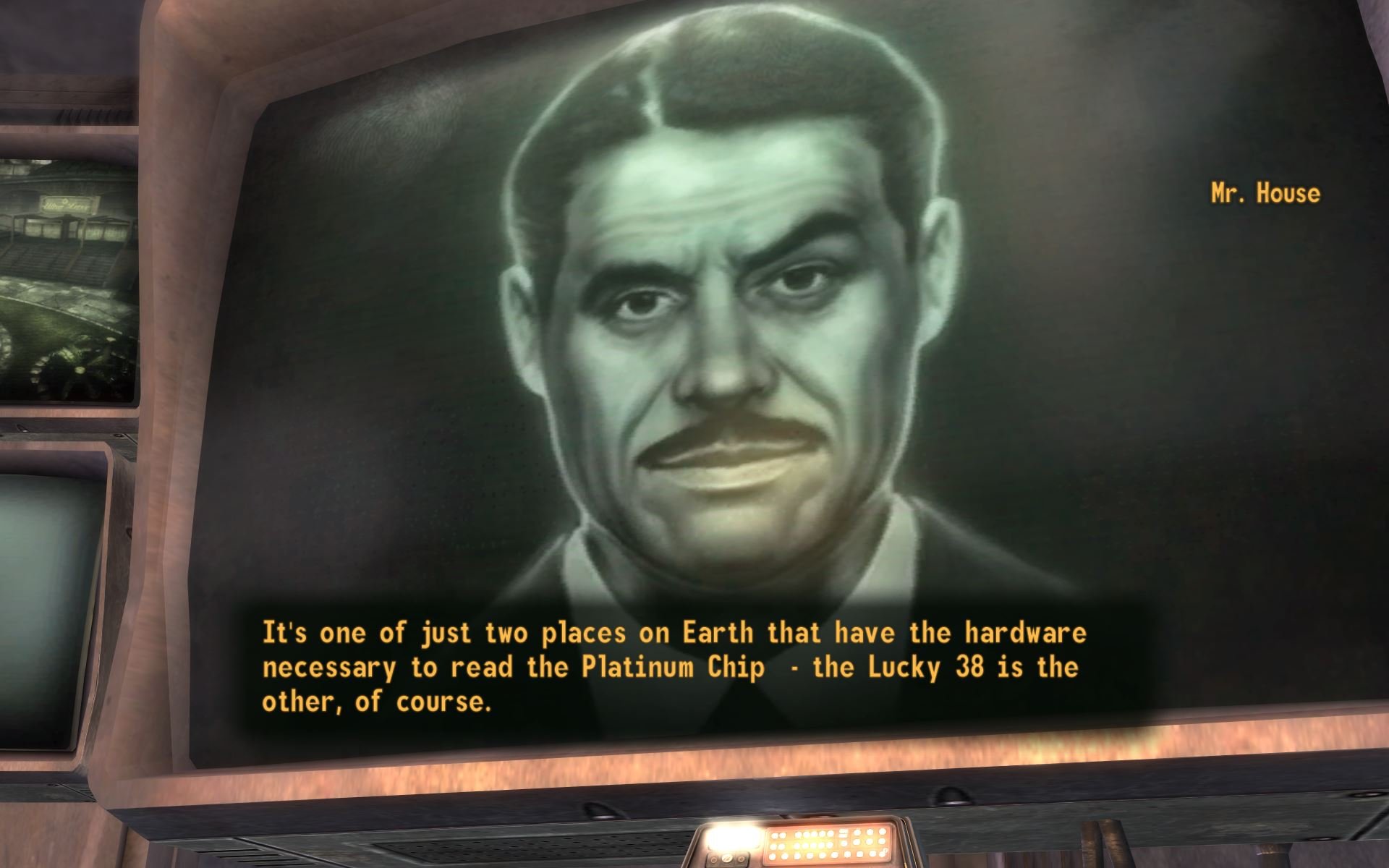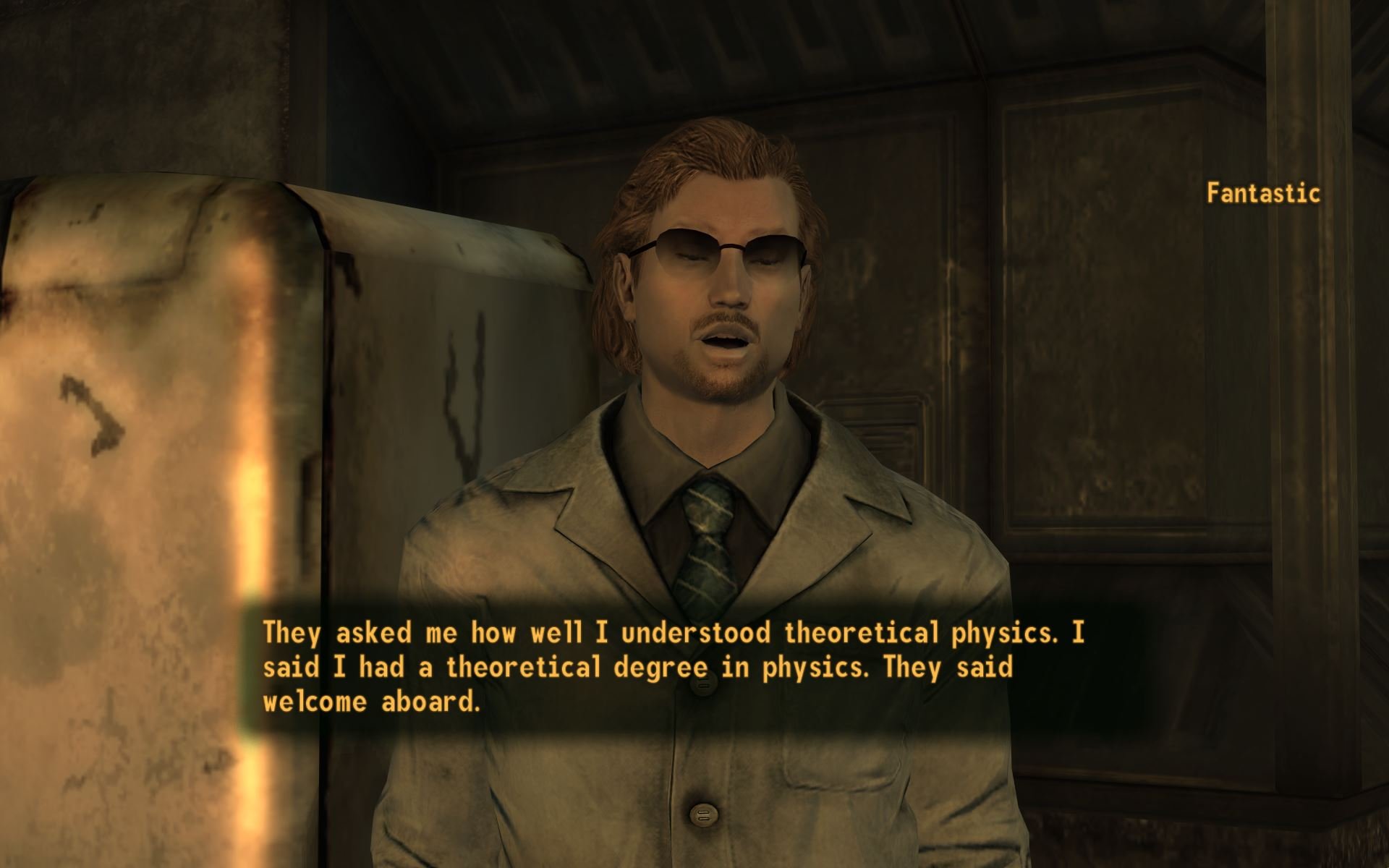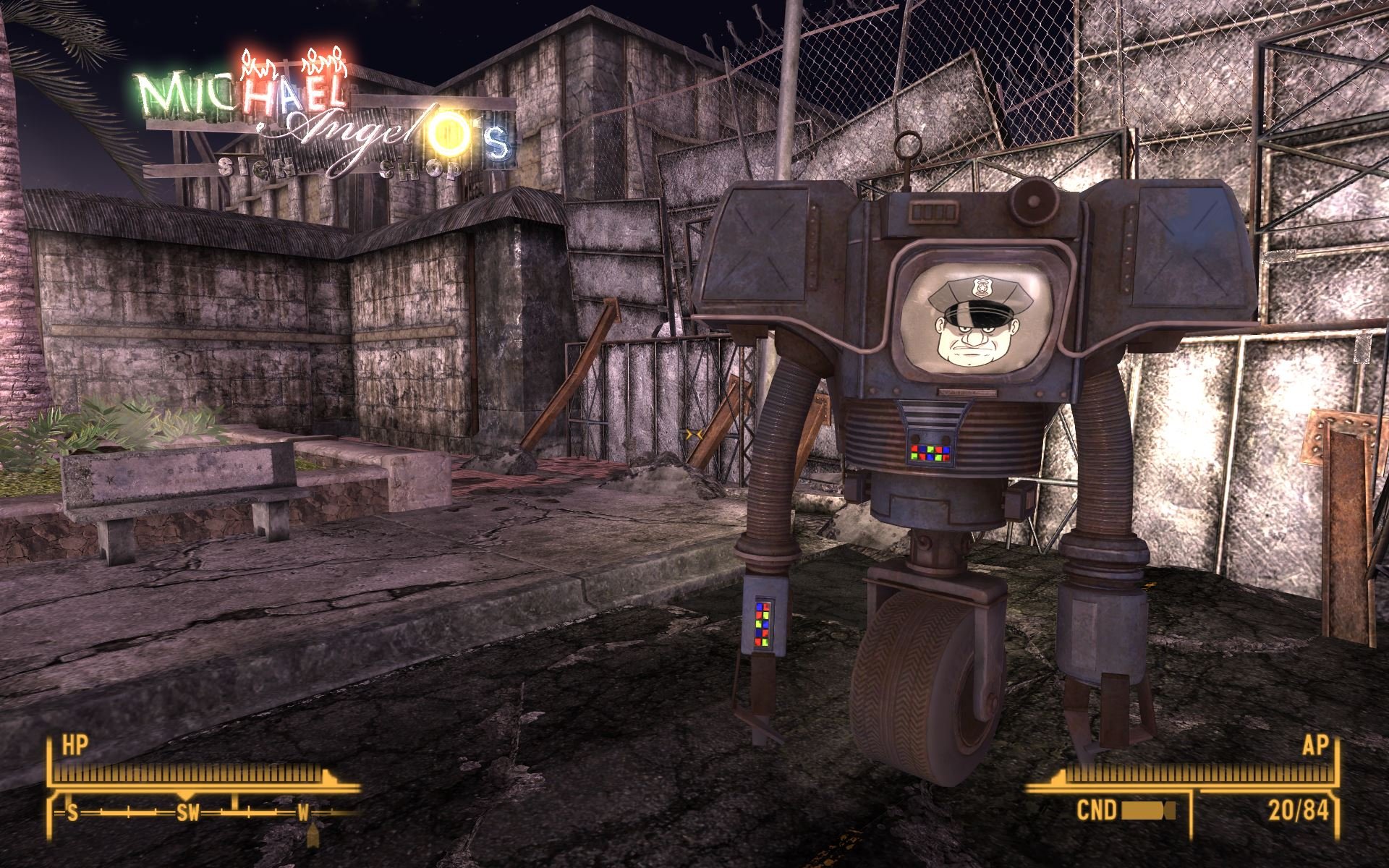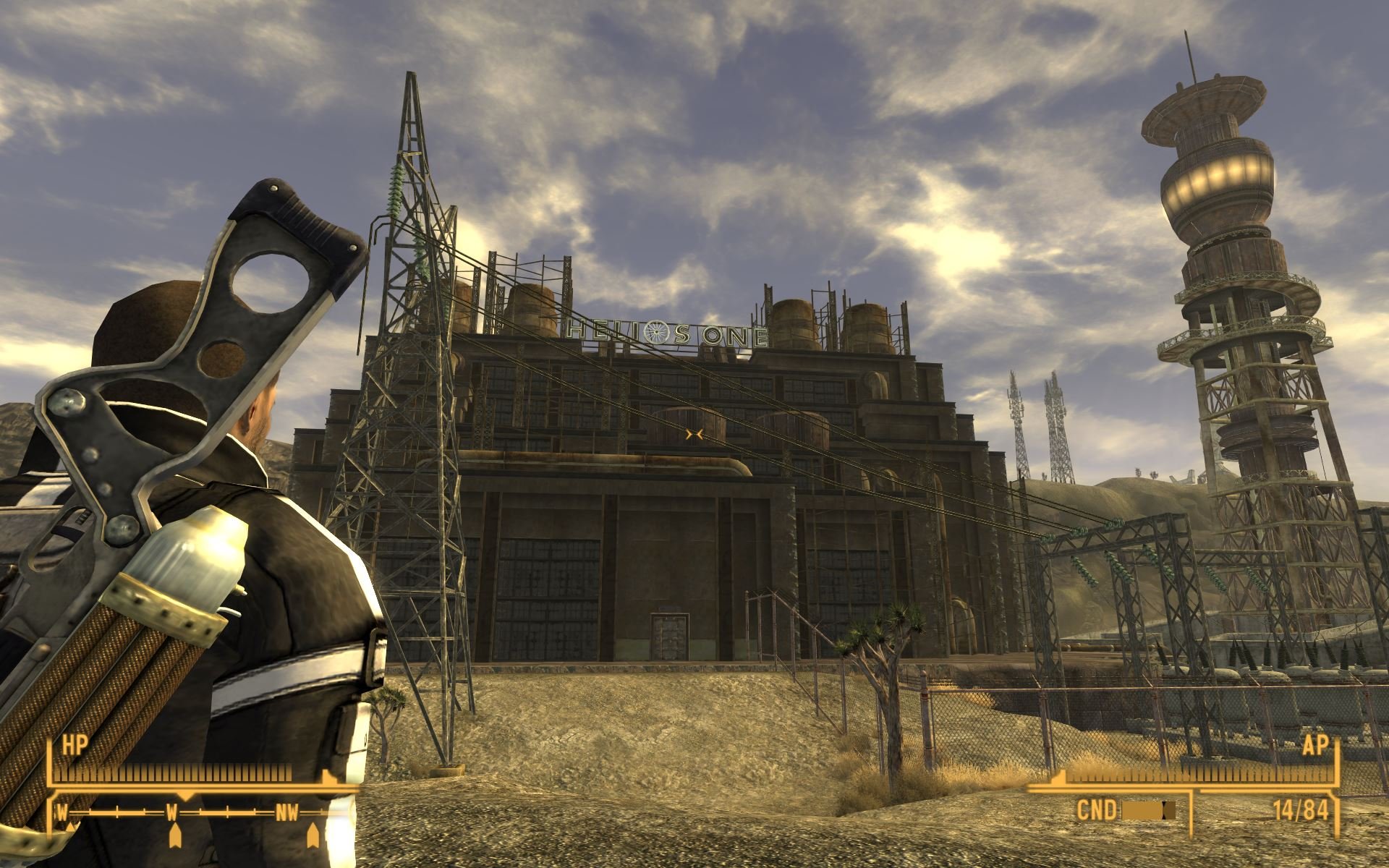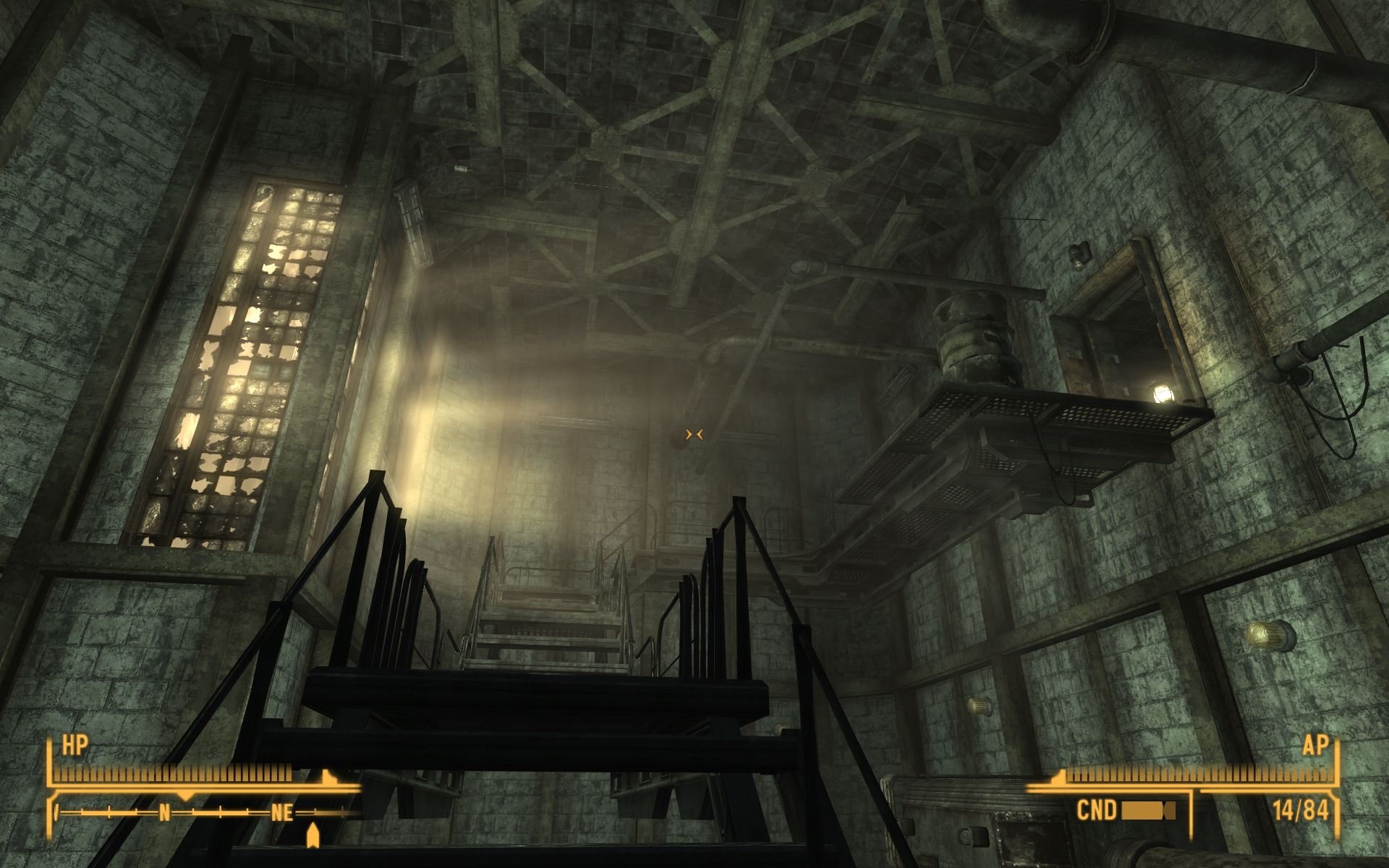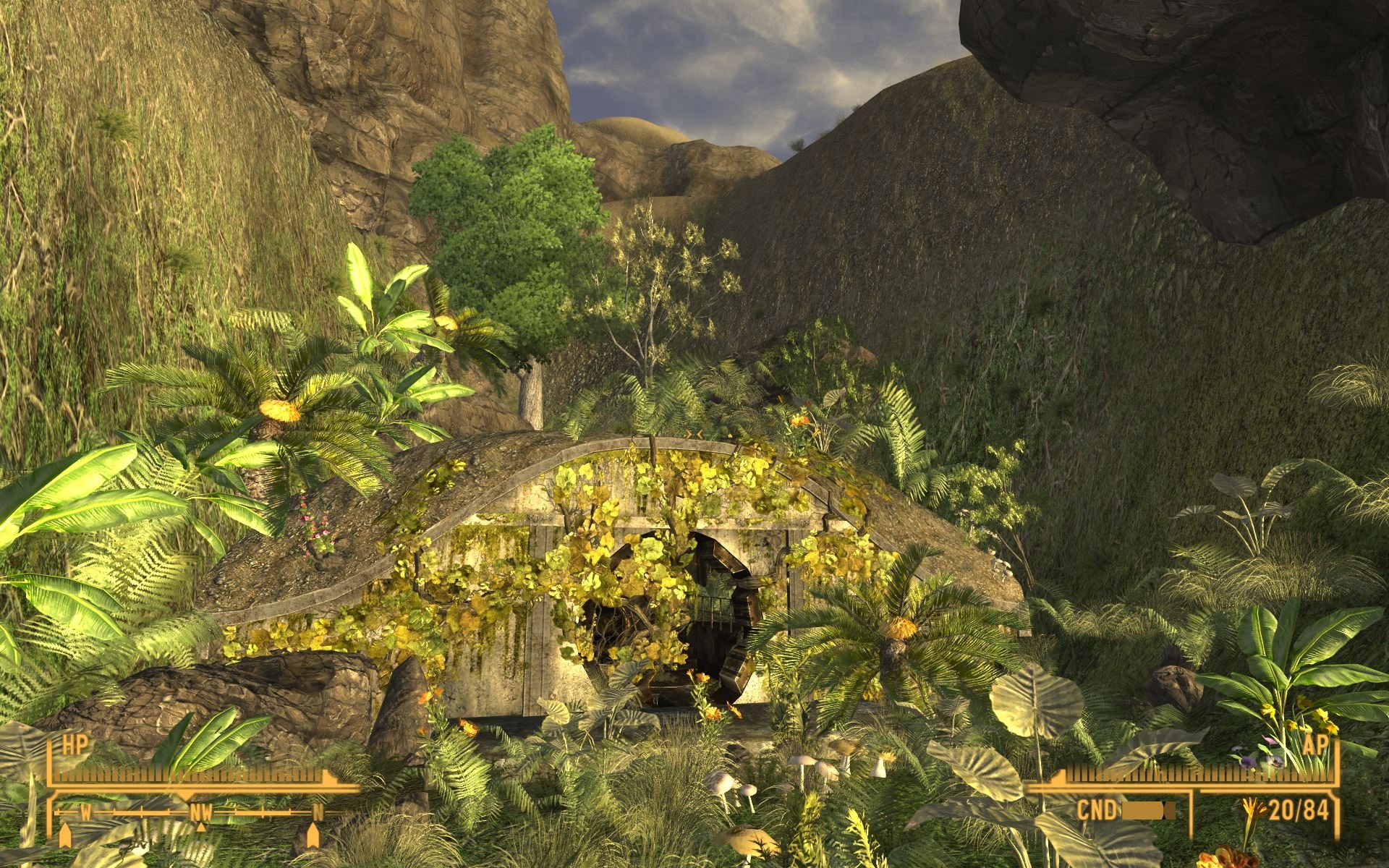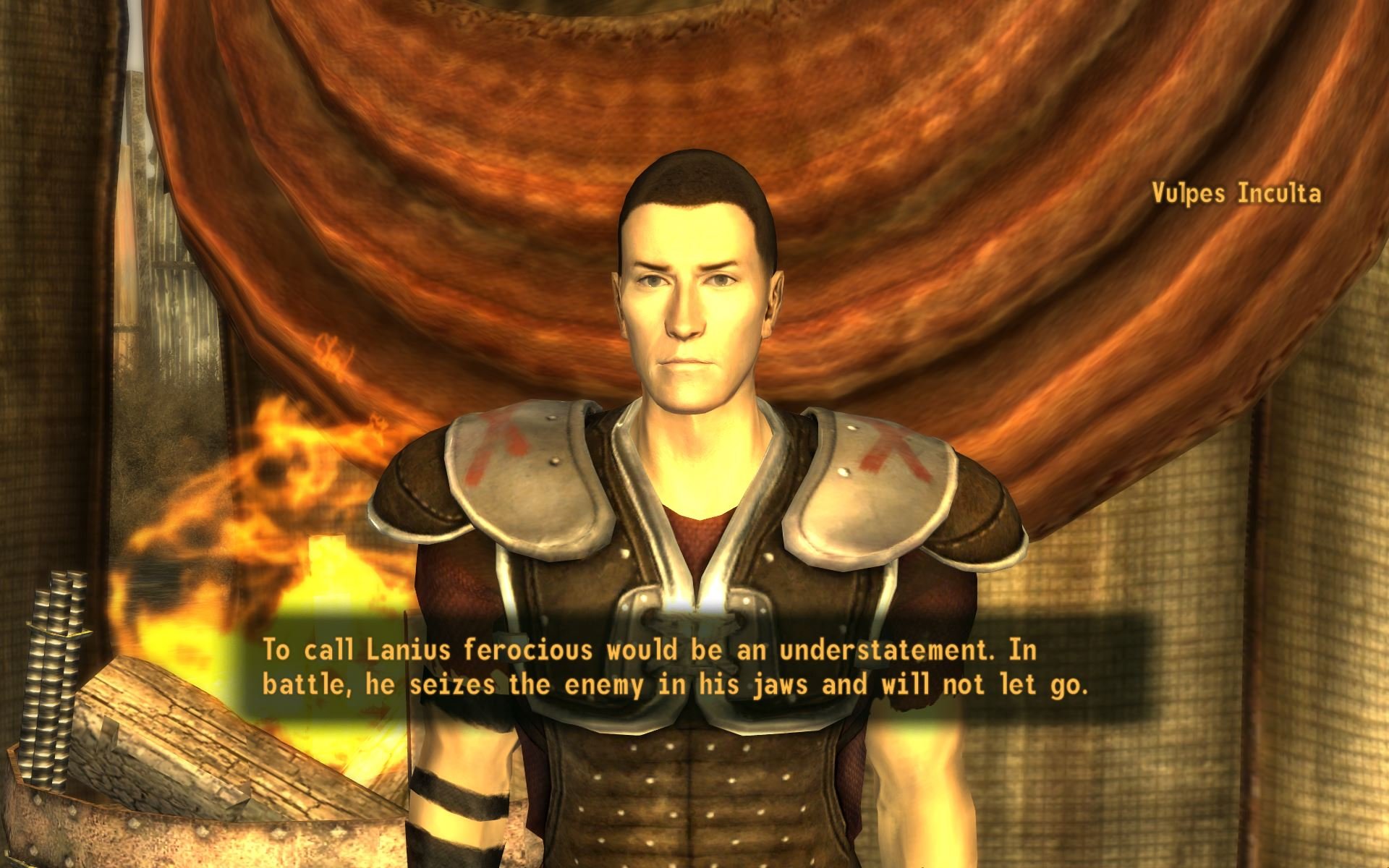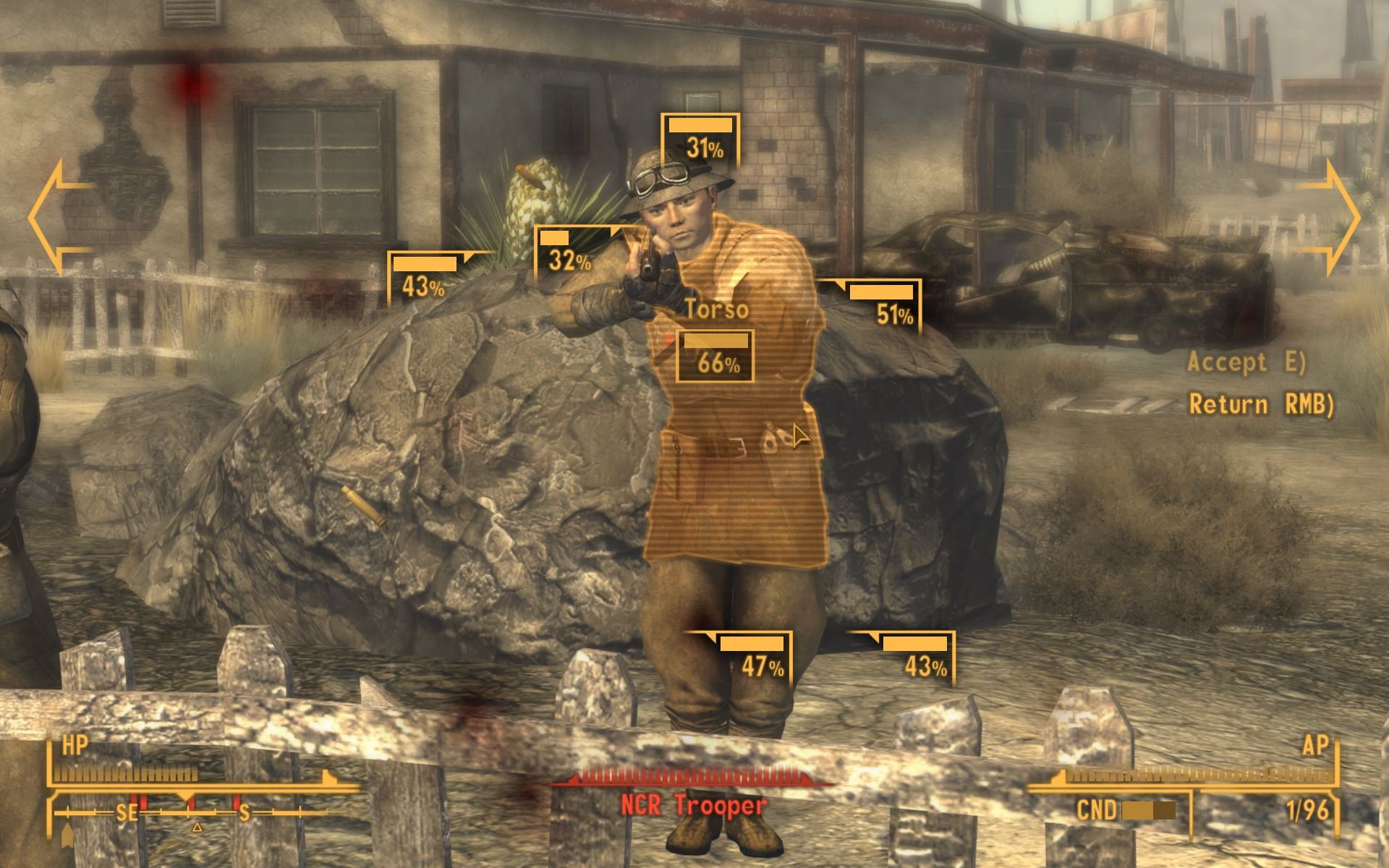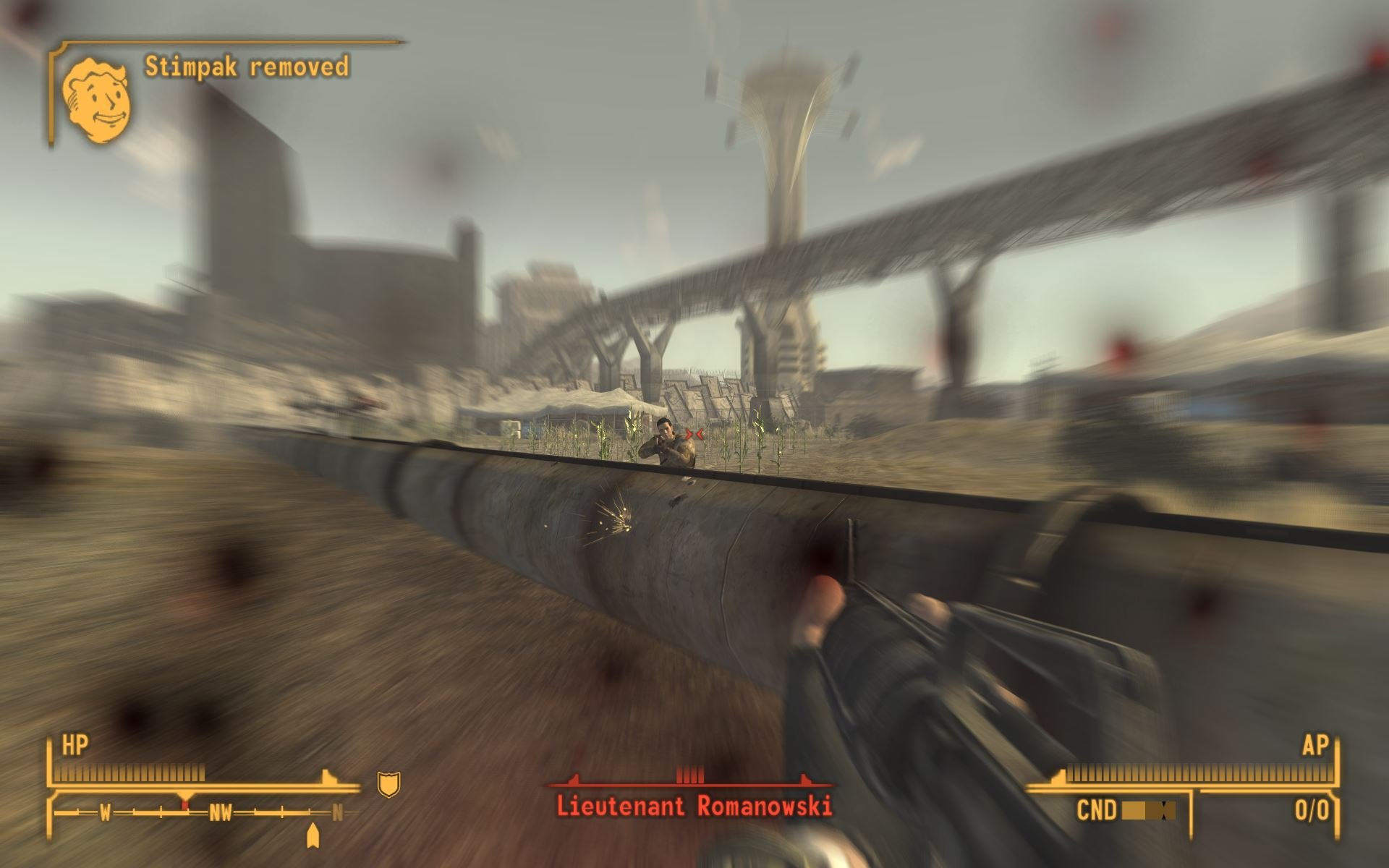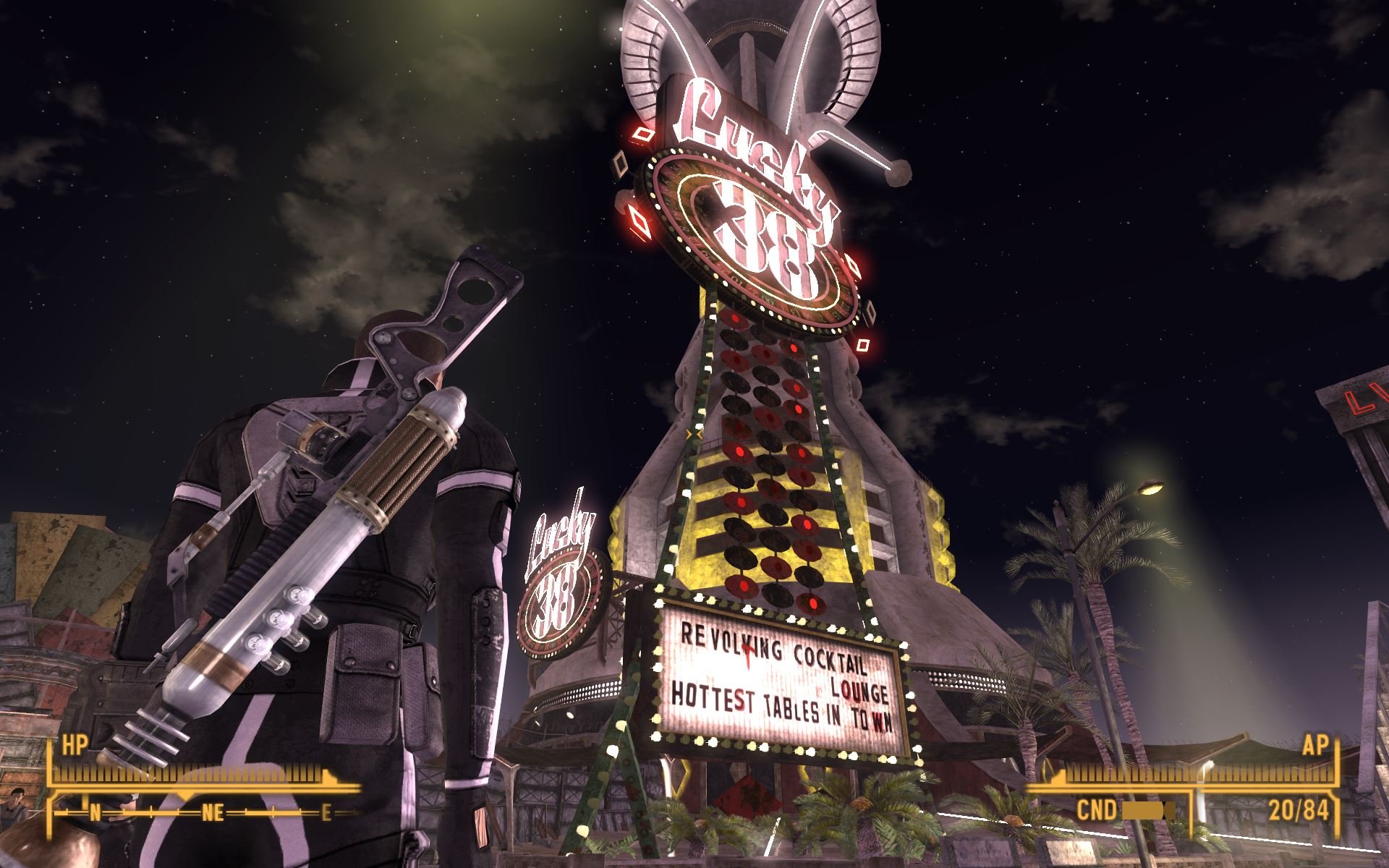Interesting People #7: Josh Sawyer on Fallout: New Vegas
Fallout: New Vegas was Obsidian Entertainment's take on one of the most revered computer RPG series ever. Few titles have such a devoted following and it's testament to the team's talent that
New Vegas was praised by fans and media alike, remaining immensely popular and maintaining an active modding community almost 7 years after its release. Here I talk to
Fallout: New Vegas' lead designer, Josh Sawyer, on the game's writing, factions, characters and more.
View full size.
Fallout: New Vegas was such an amazing game. Bethesda’s move from isometric to first person by the time you got to work directly on a
Falloutgame – was this a disappointment, or were you super stoked just to be working on
Fallout?
Josh: Well, I like making isometric games. I’ve always wanted to make a turn-based game with a tactical emphasis and that is really what I wanted to focus on when we were working on
Fallout 3 at Black Isle. But I mostly just liked that setting and my excitement came from working with that. Obviously Bethesda’s
Fallout 3 is not the
Fallout 3 that we set out to make, but once we started working on
New Vegas I’d played, oh, 160-something hours of
Fallout 3. I exhausted
every location and I got into it. I was like, “OK, I get how exploration works here, I get how discovery works, how landmarks work” as did many other members of the team. So I was just excited to work on Fallout again, and that’s really how I looked at it! (laughs)
Instead of really trying to focus on bringing over gameplay elements, we, especially Chris Avellone, developed a ton of ideas for
Van Buren (Black Isle’s
Fallout 3), and we asked, “well what elements of these can work
here?” and some of them worked directly, and others we adapted and updated. So there are a lot of general ideas that went into it, whether it was faction development or just the vibe of the world of certain characters coming over, and we just ran with it.
View full size.
Fallout New Vegas was another game where we had a very short development cycle. It was 18 months, and none of us had worked with the tools or the engine before. To Bethesda’s credit, that toolset is extremely powerful for generating content. There’s absolutely no way we would have been able to make that game without their engine and tool. So yeah, we just dove right in and it was a lot of fun making it.
You’ve got a BA degree in history – were any of the factions influenced by that? I’m thinking of Caesar’s Legion. Did you able to bring any of that in, or did it just happen to be a throwback to Caesar?
Josh: Caesar’s Legion as it was originally conceived wasn’t quite the same as how I and
John Gonzalez ended up using it in
Fallout: New Vegas. If I recall correctly, it didn’t quite have the literal ‘Caesar as Caesar’ with the legionnaire type characters in it. There was a theme that we found developing over time in New Vegas which was remaking the new world in the image of the old world. This is something that’s found in Caesar’s Legion, the Kings, the NCR, the Great Khans – there are tons of these groups. Now I know a lot of people don’t like the idea of the
post post-apocalypse, but I do like the idea of worlds and settings continuing to develop and seeing where they go. I like the idea of, “OK, it’s been more than 200 years, people aren’t just scraping by. Now they’re reforming societies and those societies are now coming into conflict with each other.”
View full size.
So the question that came to me is, “what are they trying to do? Are they going to make something brand new, or are they going to try and shape the world from what the understand the world used to be?” and the NCR is looking at it like, “OK, so we had this great, prosperous republic in California, in the United States, so we should have that – we should have a democratic republic with representatives, with a senate and a president. We should have all these things and build our world like that”. And Caesar was coming at it from a completely different direction. He was like, “this world is wild and terrifying and it needs order. There’s no room at this point in history for democracy and for people to have their usual vote and voice. If you had gone into the tribes’ lands where I went, I would have died unless I had done this. I needed to bring these people together, and once I did it I realized this is how this needs to be run. Basically, life in the wasteland is too fragile to leave to democracy”.
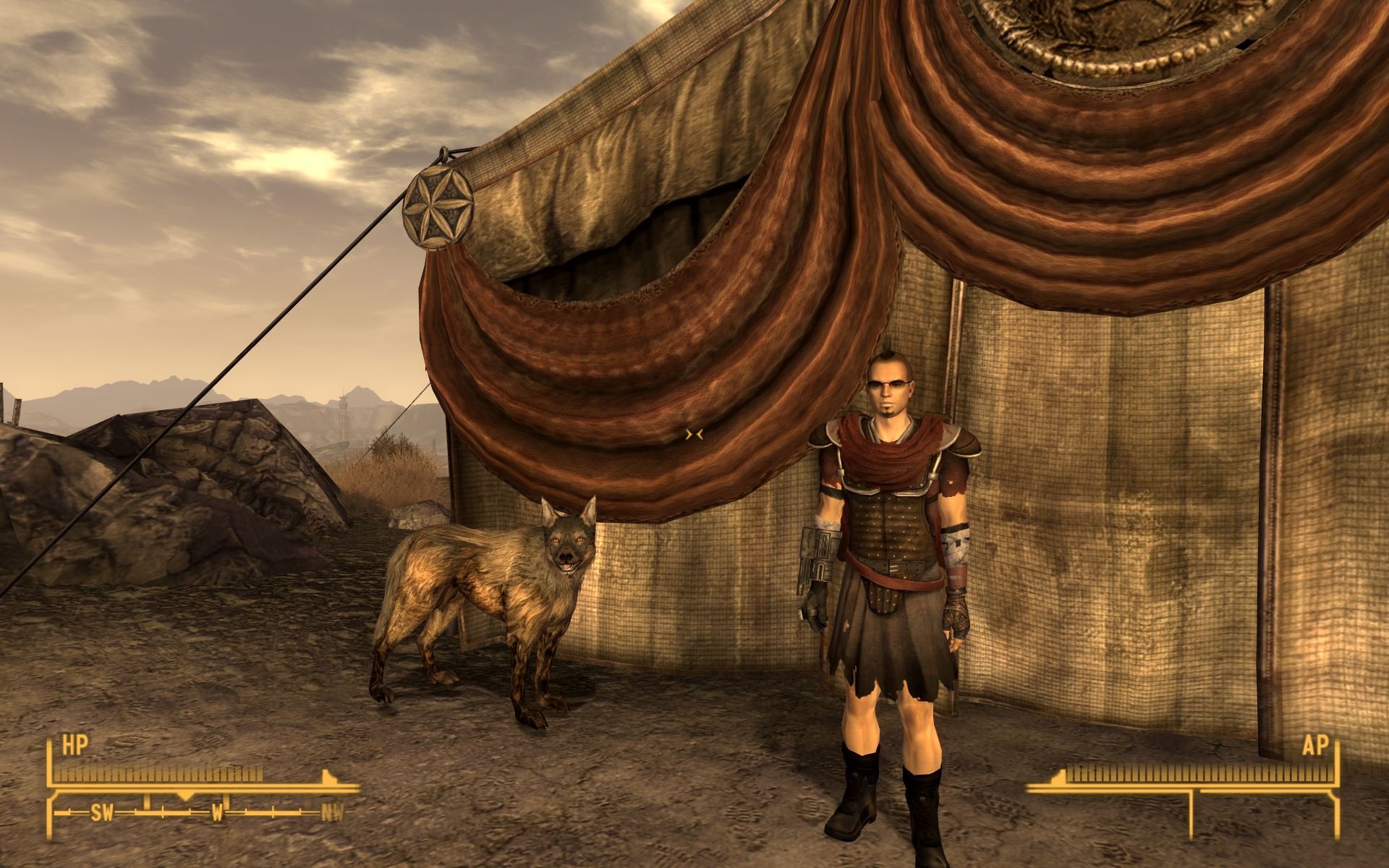
View full size.
And then you have someone like Mr. House who is very intelligent, he’s very powerful, and he wants to let people do what they want but ultimately have control over the way that things are run. He’s kind of this weird, libertarian guy, but he’s also trying to recreate the spirit of pre-war Las Vegas. So all of these groups, and the others ones I mentioned, are all kind of looking backward to try to move forward, and that’s where I tried to bring in historical elements from everything from how the different legionaries are ranked – like the recruits, and the veterans, and those guys – that’s based on the
Marian reforms, how they have these three categories of footsoldiers. A lot of people comment on how the base legionaries don’t even have guns. They only have spears and machetes. But there was this vibe in the real Roman Legion’s development where the best equipment did not go to the recruits. The idea in
New Vegas with Caesar’s Legion was, “if you do well with spears and machetes, then we’ll give you a gun”. Later when you see the veterans, the real expert guys, they do have pretty heavy weapons because they’re experienced and they earned the right.
So, yeah, we just tried to borrow elements that seemed fitting for whatever the vibe of the faction was, given that they’re pulling these elements from history often not fully comprehending them or recreating them in their own weird way. For example, all of Caesar’s Legion’s uniforms and armor are actually sports equipment. Their base padded armor is like a catcher’s chest pad and they use all sorts of other athletics equipment. The idea is that they went to the University of Arizona and they just stole all that stuff, and they’re trying to make themselves look like old Romans. So I borrowed a lot of stuff from history, or tried to anyway, to develop those factions.
View full size.
Did you have a particular favorite? Did you have a favorite faction or leader, I mean?
Josh: No, I tend to not take favorites, especially with the larger factions, because there’s this weird thing that happens where audiences will take what I say and view it as the best, or the ‘right way to play the game’. I do really like Fantastic, he was one of the first characters that was written.
Eric Fenstermaker wrote him – he’s the guy in HELIOS One who is a huge idiot but he’s really funny – and I feel like he really helped establish the tone for a lot of our conversations. In our conversations, even when the people were stupid, they kind of were smart. I mean, they were intelligently written conversations with idiots! (laughs) And there were very funny options that came up, and stuff like that, so Eric set the tone that a lot of the other writers followed.
View full size.
I really enjoy a lot of the failed dialogue options that we have – like if you fail a charisma check, or a barter check or whatever. We made a decision that you would get a line that was different and it was written like an incompetent person – like a person who’s not good at doing that – with the goal of making the player laugh. Make the player smile or think it’s funny. The rule was never make them worse off than before they picked it, so that if they fail the check they can get their laugh and they don’t feel bad. They don’t feel like they have to reload. Rather, they can think, “eh, I picked the wrong option but whatever, it was funny, it was good” and so I think all the writers did a great job writing those fail lines because they really give a lot to the game.
View full size.
And in terms of the DLCs, did they have content that you just couldn’t get in given your short dev cycle, or did you always plan on having all four of those? They were great, self-contained little get-in-get-out additions for when, say, I’m feeling like I’ve only got 10 hours of Fallout in me right now!
Josh: (laughs) Yeah, most of the DLCs were conceived by Chris Avellone. That came towards the end of development. They weren’t cut areas at all – they were conceived of just for DLCs. Chris had an idea for overarching themes and stories. I was the director on only one of those, which was
Honest Hearts, which Chris pretty much just said, “what do you want to do?” and I said, “I want to do
this,” and he worked with me to tie the story of Joshua Graham and Ulysses and Caesar together so that the whole arc of DLCs make sense. They really were conceived as their own things separate from the base game – I don’t think there’s anything in there that was a discarded idea that we came back to.
View full size.
OK – so as a player, were you so entrenched in making the game that you couldn’t quite enjoy all the DLCs, or was it that because you only made
Honest Hearts you could properly take to the other three?
Josh: Oh I enjoyed them. I mean, I do think that our mechanics seem to fall apart when you get to a really high level in
Fallout: New Vegas. Like when you start pushing up above 30th level, the way creature scaling works gets kind of wonky. So some of the battles can feel like real slogs, but I don’t know if that was so much a problem of the DLC or so much the underlying mechanics of the game. So setting those aside, I think each of those DLCs succeeded at being very different from the base game and very different from each other. That was really a goal that we were trying to accomplish.
Now not to speak too much for Chris, as he can certainly explain his own motivations, but in
Dead Money he wanted it to feel more like a survival horror-type game where you feel more desperate and really like you’re scrounging in a world that’s very dangerous. That’s the feeling he was trying to get across. In
Honest Hearts, I wanted to convey the sense of wonder which I found in going to Zion in real life. So my goal with the team was that I wanted to make the prettiest environment that we can in this engine – a beautiful, natural setting and build it around the idea of these tribes coming together and fighting, with Joshua Graham sort of in the center of it. Also the other big goal that I had for
Honest Hearts was that I wanted to have real world religion as a major theme in the story that was dealt with seriously, and not as a joke.
View full size.
Meaning what, exactly?
Josh: Well, religion often, in games, is used sort of as a joke. It’s used for humor, it’s not taken seriously, and it’s not really examined in much depth.
Honest Hearts is really, fundamentally, about Joshua Graham and Daniel’s Christianity and how they view their beliefs, how the Sorrows view their beliefs, where the disconnect between those beliefs are, the problems with imprinting this missionary work onto these people who are unfamiliar with it and how they misinterpret those symbols.
Also it’s a very classical prodigal son story. Joshua Graham was this missionary who went away and became this horrible monster and then came back and tried to redeem himself, and now is at the verge of falling back into this very monstrous behavior. So, yeah, that was the goal I had with that. Then with
Old World Blues, there’s a very heavy focus on humor – much more so even than the base game – a very specific type of humor. And I can’t take any credit for that. It was the one DLC I didn’t work on at all.
So, with each of those games we had a different focus and were trying to accomplish different things. And with DLC, we kind of know how these sell over time, so really our goal was to try and make something with a little bit of cool stuff, some cool gear, some cool new perks and sprinkle them around to make sure people get all the cool new stuff, and then come up with a neat idea that feels distinct that people will really want to pursue, and just execute on it. Even if people won’t like it, it’s probably still good! (laughs) Because like you said, it’s only five, six, or seven hours so if someone is like, “meh” about it, that’s at least a safer place to try weird ideas than in the core game where you have to build a whole game around it.
View full size.
Talking of the core game, going back is there anything you would have done differently now that you’ve seen it released and the fan and media reactions and so on – is there anything you would have changed?
Josh: Yeah, I mean I did try to address a lot of the major and minor problems in a mod that I made. I updated it for about six or nine months after the game released. It was just stuff that we couldn’t patch in or couldn’t do ourselves through official channels. So I made a mod for it where I tried to address a lot of those bigger mechanical issues that I saw.
In terms of structure, yeah there were a few things we’d do differently, like a bigger focus on Legion content as its own quest line. When a lot of people played through with the Legion, it was very hard because the legionaries, especially the rank and file legionaries, were so overtly hostile towards women that it made it really, really hard. I mean, the very concept of the Legion is pretty nasty, and there wasn’t an intention to sugarcoat it, but then when you go and talk to the individual rank and file characters… well, the intention was that those guys don’t really care one way or another. They’re members of the Legion and they are there to fight. But in reality when you talk to them they were really hostile toward women and it made a lot of people feel like, “okay, I get the
vibe that Caesar is going for, but this is even a bit way farther than that”.
View full size.
You mean, when removed from the game people may think “this game is a bit misogynistic” or “these game designers are a bit misogynistic”?
Josh: I’m not really concerned about people thinking
we’re misogynistic. See, we tried to create factions that would appeal to people for different reasons. So for example a lot of people will talk to Caeasar and think, “well this is a smart guy, but I can’t really support him” and others will talk to him and think, “well, this is a smart guy, and he’s got some pretty interesting ideas – maybe I
do actually support this”. But then they see how they treat women and do all this other stuff and then they think, “okay well never mind”. So if your faction is on a certain level just inherently repugnant, people are not interested in doing that content at all. And like I said, more to the point is that the rank and file legionaries were conceived that they just wouldn’t care. They’re in an all-male fighting force and
their job is to fight and to serve Caesar. So it just gave a weird impression that wasn’t really intended.
But the bigger thing is that the Legion didn’t have a lot of its own independent content. A lot of its content was the other side of NCR content, and it seemed like it didn’t have enough meat to it. There were areas that we had talked about doing for them but hadn’t planned well enough for. I think that early on there were some really risky designs that we tried to do that I would have scaled back on, and then I would have focused more on getting more content in so we could have a more robust Legion questline.
View full size.
And then anything about the base game that you’re particularly proud of?
Josh: I think it’s really about, with the exception of Caesar’s Legion, we did a good job of presenting the different faction decisions to the player in a way that made them really think a lot about the choices that were making and really question their own values. Have them asking, “what is important to me? Ultimately I believe in democracy, I believe in representation, I believe our modern style of government, so I have to support the NCR” – but then they see the NCR and see it’s corrupt and very dysfunctional, and it has a lot of problems, and then people go, “well, I
do value that sort of stuff but also I recognize in Mr House that he is someone who is very intelligent and clear-minded, and who has a clear vision of what he wants to do, and that seems very appealing”. But then by the same token he’s really ruthless, and at one point he orders you to wipe out the Brotherhood of Steel, and for a lot of people that is their breaking point. A lot of people love the Brotherhood of Steel so they’re like, “ugh, why will this guy not… ugh, I can’t do this”.
View full size.
Or for example, the independents path is the most popular ending that people take, which is not super surprising. Then I’ve seen a lot of people comment that yes, it’s a decentralized government but there are a lot of problems with it, so while you’re free, with that freedom, well, a lot of stuff kind of falls through the cracks and things aren’t super safe, and, well, that’s what you get. I’ve seen a lot of people talking about how they think through these and how they’re role-playing their decisions, and that’s the thing that I’m happiest about. As a tabletop designer, when it comes to making and running tabletop games, I really like it when the players feel like they have a lot of important decision to make, and when they start arguing with each other about what to do it’s not about mechanical stuff, but rather it’s about the beliefs that their characters have. And when they get really passionate about it and you can see that they really believe in this thing, it’s kind of made them analyze this world through a lens where they’re treating it like a real thing – a real problem that has real consequences and moral decisions and things like that.
That’s what I’m happiest with, and I credit the writers – John Gonzales especially. He was our lead narrative designer. But really, everyone contributed to making that a reality, and I’ve very happy about the fact that people still argue about what faction is best and their decisions and all that.
View full size.
I guess one thing to wrap up this discussion then, is if you could do another one, maybe in the Fallout 4 engine, or if there’s anything you can say about working on another one?
Josh: Ultimately, and I’ve said this on
my Tumblr, it’s not Obsidian’s license and I’m glad I got to work on that world, and if I got another chance it would be really cool too, but I don’t spend a lot of time thinking about where I would go or what I would do, because to a certain extent I have to recognize that it’s not our world to play with, really. It certainly would be fun to make another
Fallout game – I certainly wouldn’t count it out. As Feargus says, “we’d always be interested in doing it if there’s another opportunity”.
Well, if we saw it one day, that would be great. OK, thanks very much for taking the time, Josh.
Josh: Nice, thank you.
Learn more about Obsidian Entertainment at their official site, and follow Josh on Twitter here. And if you haven't already, see the link below for more on Pillars of Eternity II: Deadfire direct from Josh himself.







 with some of those DLC weapons.
with some of those DLC weapons.























